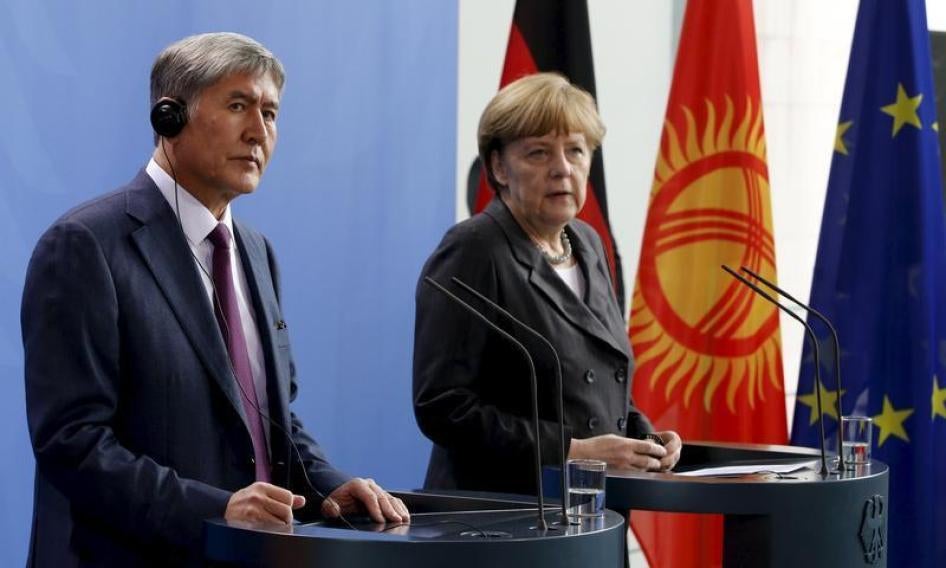Angela Merkel will soon be able to add Kyrgyzstan to the list of countries visited by a German chancellor. According to aides, the reason for her July 13-14 visit is that Merkel believes strongly that Kyrgyzstan, as Central Asia’s sole parliamentary democracy, deserves support in a region otherwise dominated by highly authoritarian governments that trample on basic human rights.
Merkel’s intentions are right – up to a point. Unlike its neighbors, Kyrgyzstan holds relatively free elections and allows protests in the streets. While the country has recently strengthened ties to Russia, its parliament in May took the encouraging step of rejecting a draft law – based on Russia’s restrictive ‘foreign agents’ law – that would have severely limited the operations of nongovernmental groups.
But Kyrgyzstan’s better human rights standing relative to its neighbors is not good enough, and Merkel should use her leverage to urge the country towards serious improvement. Although Kyrgyzstan boasts about having signed many international human rights treaties, its record in implementing these accords is patchy.
Legal proceedings this week on the case of Azimjon Askarov, a 65-year-old rights defender, are a case in point. He was jailed for life in September 2010, following a flawed and unfair trial, for “organizing mass disturbances” leading to the death of a policeman in southern Kyrgyzstan, in the aftermath of interethnic violence there that summer.
There is strong evidence Askarov, who is in ill-health, was tortured in prison. Many governments and international organizations have expressed concern at his jailing. In April, in a landmark ruling, the United Nation’s Human Rights Committee called for Askarov’s immediate release. This week, Kyrgyzstan’s Supreme Court ordered a retrial but kept Askarov in jail. Kyrgyzstan remains bound to implement the UN ruling; whether it does so will influence its future international standing on upholding human rights.
There are other human rights concerns, including discrimination against minority ethnic Uzbeks, violence against women, and violations of detainees’ rights in government efforts to combat religious extremism. The authorities have banned, without explanation, Human Rights Watch’s Kyrgyzstan researcher from the country.
Merkel knows Kyrgyzstan President Almazbek Atambaev from his Berlin visits. She should urge his government to take the necessary steps to secure Askarov’s immediate release. This would bring justice, transform a frail old man’s life, and support human rights protection in a troubled region. For a first-ever visit by a chancellor, that’s not a bad agenda.









